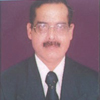PM is not the CEO and therein lies the problem

Bhaskar Parichha | August 10, 2011
India’s ambition to achieve Universal Health Coverage (UHC) by 2030 is faltering under the weight of low public spending, rising privatisation, and deepening inequality in access to care. Leading doctors and public health experts warn that the current system, heavily dependent on out-of-pocket spendi
The Department of Atomic Energy (DAE) organized a curtain-raiser for the upcoming Emerging Science, Technology & Innovation Conclave (ESTIC-2025) at its headquarters in Mumbai on Thursday. As one of the key organisers of the national conclave, DAE will lead the thematic session on ‘Energy, Enviro
The Department of School Education & Literacy (DoSE&L), Ministry of Education, has reaffirmed its commitment to advancing Artificial Intelligence and Computational Thinking (AI & CT) as essential components of future-ready education. The Department is supporting institutions such as CBSE, NCERT
NITI Aayog’s Frontier Tech Hub unveiled a roadmap “Reimagining Manufacturing: India’s Roadmap to Global Leadership in Advanced Manufacturing” in Pune on Wednesday . The roadmap was unveiled by Devendra Fadnavis, chief minister of Maharashtra; Ajit Pawar, deputy chief
The Union Cabinet, chaired by prime minister Narendra Modi, on Tuesday approved the Terms of Reference of 8th Central Pay Commission. The 8th Central Pay Commission will be a temporary body. It will comprise of one chairperson; one member (part time) and one member-secretary. It will make it
The global agri-food system faces critical sustainability challenges linked with land degradation, deforestation, water depletion, climate change, biodiversity loss, and food insecurity. Agriculture contributes to one-third of global greenhouse gas (GHG) emissions, largely driven by food waste, deforestati

